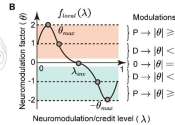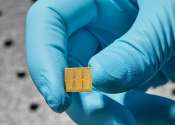Speech recognition (also known as automatic speech recognition or computer speech recognition) converts spoken words to machine-readable input (for example, to key presses, using the binary code for a string of character codes). The term "voice recognition" is sometimes used to refer to speech recognition where the recognition system is trained to a particular speaker - as is the case for most desktop recognition software, hence there is an aspect of speaker recognition, which attempts to identify the person speaking, to better recognise what is being said. Speech recognition is a broad term which means it can recognise almost anybodys speech - such as a callcentre system designed to recognise many voices. Voice recognition is a system trained to a particular user, where it recognises their speech based on their unique vocal sound.
Speech recognition applications include voice dialing (e.g., "Call home"), call routing (e.g., "I would like to make a collect call"), domotic appliance control and content-based spoken audio search (e.g., find a podcast where particular words were spoken), simple data entry (e.g., entering a credit card number), preparation of structured documents (e.g., a radiology report), speech-to-text processing (e.g., word processors or emails), and in aircraft cockpits (usually termed Direct Voice Input).









